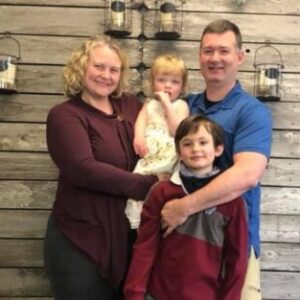Foster parenting through the pandemic
“I can’t fix the follower coaster while I ride it. I just have to hang on as we ride it together. We open our homes and families to inspection, we surrender control of our schedules to accommodate the demands of the system, we give up some freedom to abide by the rules set in place for the protection of all foster children.
In exchange, we care for kids (and often their families) through some of their hardest days. It is an incredible honor. While the system frustrates me, I hold on to the truth that loving the most vulnerable is my highest responsibility.”
– Lisa Qualls, Author of “The Connected Parent”* (as posted by Trista and Jay Mason on Facebook)
Parenting through the pandemic has been difficult for everyone raising children. But as we celebrate Foster Care Month in May, we recognize and celebrate those who have taken on the task, what Lisa Qualls describes as “the honor,” of helping to raise other people’s children. The lives of foster parents have been upended by the pandemic in ways that differ from those experienced by biological parents, said Trista Mason, who with her husband Jay, are both former board presidents of Family Education & Support Services. The Masons have two children, one adopted from foster care.
“This has been incredibly challenging for foster parents,” said Trista, who was facilitating a FESS-sponsored foster parent support group at the Hands On Children’s Museum before the pandemic, an activity that had to be eliminated.
Foster parent Shanda Tomsik, Olympia, agreed. “It has been really kind of a nightmare,” Shanda, a former foster child adopted by one of her foster families, met Trista at a class. Her foster kids were tested for COVID 11 times – and sometimes quarantined afterwards.
“It’s been a real roller coaster,” she said. The state-required in-person home visits and visits with biological parents were replaced by Zoom visits, another challenge for foster parents and one less chance for face-to-face contact with social workers. And for children who longed for visits and physical contact with their birth parents, it was even tougher.
Foster parents and the kids in their care quickly became “Zoomed out,” basically eliminating one key element of communication and foster parent support, Trista said.
At the same time, the usual supports disappeared or were reduced because of Covid-19. Support from social workers was hard to come by, since they were working from home and sometimes inaccessible because of full mailboxes and email issues. Other important supports to foster parents, including cancellation of respite care, also were eliminated, Trista said.
Jane Vandeventer, a foster mom in Lacey who participated in the support group, said, “We really didn’t get a break … With all the requirements of the state, our life is not really our own.”
The pandemic also affected the number of children entering foster care. The numbers dropped, a worrisome factor because with no school, children suffering abuse and/or neglect had less chance of being noticed and reported.
“Nobody had eyes on the kids,” Trista said.
Some foster parents worried about possibly exposing themselves to the virus by taking in new children during a pandemic, leaving them feeling torn because they wanted to make sure kids had a good temporary home.
Jane, a nurse, and her husband Neal plowed ahead regardless. They care for babies – many of whom are medically fragile – and “it’s non-stop right now,” she said.
School, itself, became an issue. Like many parents, foster parents found themselves thrust into the role of teacher – a job they didn’t sign up for, and many felt ill-prepared. For foster parents who already juggle usual parenting duties with the numerous meetings, appointments and document-keeping required of them by the system, the additional duties required by teaching or monitoring children being taught online stretched their resources.
“The school piece has been the hardest,” Trista said, noting that “Your average foster kid is not on track in school,” she said.
Studies have shown that each move made by a foster child produces about a six-month drop in educational advancement.
“Just getting them (kids) to eat, sleep and stay alive is difficult. It was such a struggle to do the school part.”
And without childcare or respite care, foster parents never got a breather.
Trista and Jay are still licensed foster parents – despite the craziness of the last year, they were re-licensed during the pandemic. But they are taking a break from foster parenting for now.
Their hearts remain with the kids as they await a return to normal.
Through their dedication, as with thousands of other foster parents, they have proven, as Qualls wrote, that loving the most vulnerable is their “highest responsibility.”
*Lisa Qualls is an author, speaker and coach. You can find her on Facebook or at www.onethankfulmom.com
Author: Bob Partlow

Trista and Jay Mason with Caleb and Hannah
